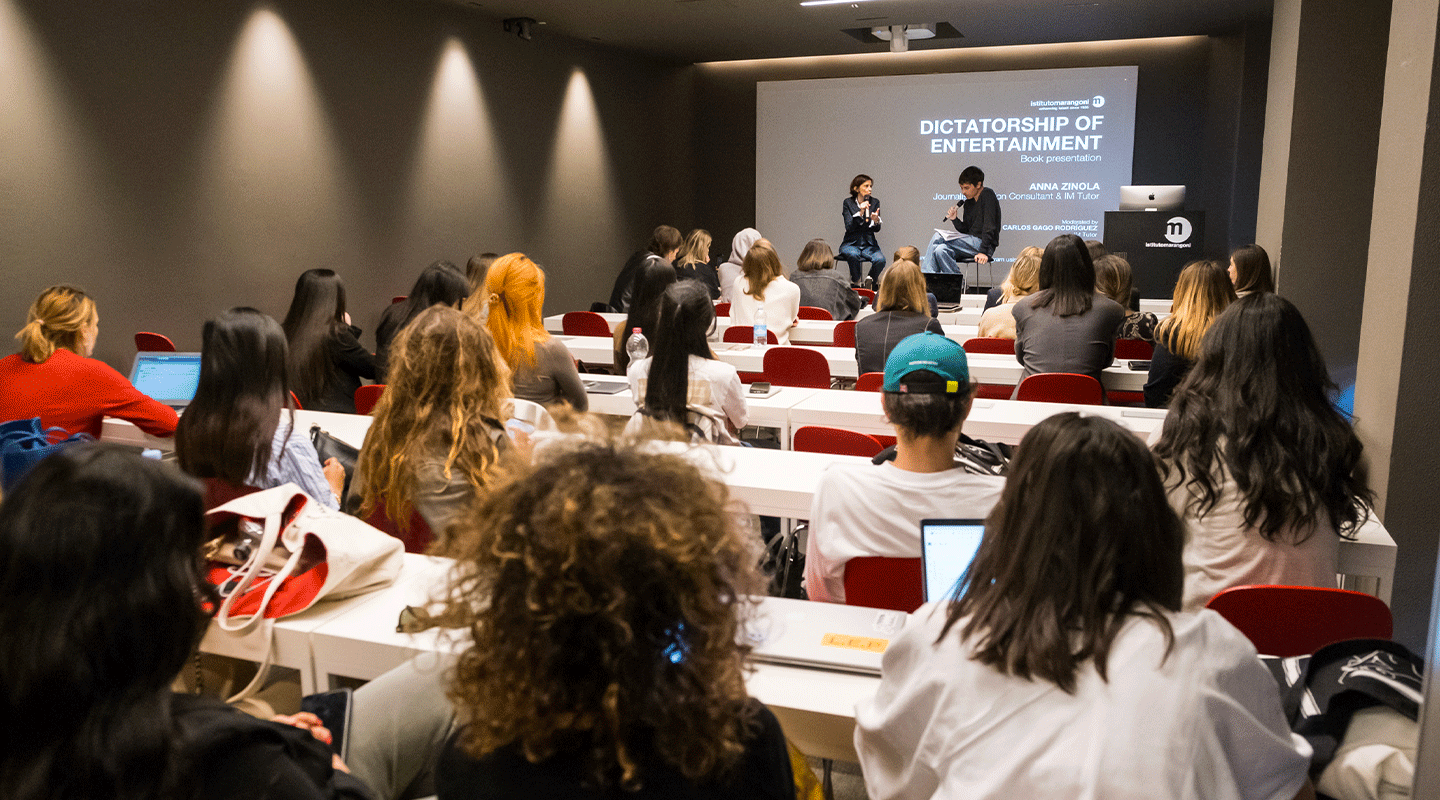Entertainment is everywhere. As long as we enjoy doing something (actually anything), we can say it’s entertainment. Keeping us busy can be entertaining. Going to the movies, having dinner with friends, listening to music all alone or cheering in a stadium with a crowd.
Entertainment encompasses actions, events, or activities crafted to engage and capture the interest of an audience. In some ways, the presence of an audience is what makes any private leisure or recreational pursuit a form of entertainment. This engagement can be passive, such as attending a theatrical production, opera, TV show, or film, or a strongly active one, as seen in the realm of gaming.
It’s clear now that entertainment is a potent force, and consequently, media companies and brands that excel at harnessing it hold significant influence.
Curious to delve deeper into the (soft) power and the evolution of entertainment over time? With high-end fashion brands now employing entertainment as a tool to attract and engage luxury consumers, we tried to unravel the complex question: “Why is the pursuit of fun deemed essential?”

Anna Zinola, journalist and professor at Istituto Marangoni Milano, presenting her book "The Dictatorship of Entertainment" alongside Carlos Gago Rodriguez, fashion buyer and professor at Istituto Marangoni Milano
This exploration was sparked by a discussion attended by students of Istituto Marangoni Milano. The talk featured Anna Zinola, a prominent journalist and professor at Istituto Marangoni, renowned for her book “La dittatura dell’entertainment. Perché dobbiamo sempre divertirci” (The Dictatorship of Entertainment: Why Must We Always Have Fun).
Have We Always Been Craving Entertainment? (Yes)
The need to have fun is rooted not only in human nature. Many living creatures express their ability to have fun for fun’s sake. The desire to find pleasure serves an evolutionary purpose. However, finding satisfaction and happiness in life is a unique characteristic of creatures with a high sense of self-consciousness like humans.

The expression “Bread and circuses” (from Latin: Panem et circenses) originated in Ancient Rome, referring to the idea that the public needs to have entertainment. Collage courtesy of IM alumna and graphic designer Constanza Coscia
People could get crazy without a little bit of fun. About 2 thousand years ago, the expression “Bread and circuses” (from Latin: Panem et circenses) originated in Ancient Rome. It refers to the idea that the public needs to have entertainment and distractions, but it actually means that fun and public approval are linked. This concept is similar to the modern-day saying, “All work and no play makes Jack a dull boy”, which can be found in Stanley Kubrick’s film The Shining but is actually a popular proverb.
The Evolution (and Power) of Entertainment: From Pastimes to Global Phenomena
Entertainment, both public and private, encompasses a rich array of activities, from structured performances like theatrical concerts to spontaneous (video) game sessions. Within this spectrum, events like music or dance festivals engage audiences over multiple days, offering diverse experiences.
As time passes, it becomes evident that some activities that were once considered entertainment have lost their popularity, while others that were once restricted to specific professions have evolved into competitive sports, captivating a broader audience. This highlights the ever-changing nature of entertainment, which is greatly influenced by societal contexts throughout history.

The landscape of entertainment transformed with the emergence of radio and cinema as mass media platforms. Collage courtesy of Constanza Coscia
The evolution of entertainment underwent a significant change with the rise of radio and cinema as mass media, a trend that was reflected mirrored in the fashion industry. This transformative period democratised access to cultural events, fostering global participation and engagement.
The emergence of television further extended the scope of entertainment, intensifying the allure of Hollywood films and sports on a global scale. These trends, while rooted in tradition, have evolved with modern technology, engaging audiences worldwide while garnering an unprecedented following and developing significant influence.
Indeed, the entertainment landscape is constantly evolving, influenced by cultural shifts and technological advancements. Films and electronic games, for example, maintain the tradition of storytelling and incorporate music reminiscent of past forms of entertainment. However, they now heavily rely on new media, frequently employing cutting-edge special effects and technological innovations to achieve success.
“Recent history underscores the pivotal role of technology in driving entertainment trends” – Anna Zinola, journalist, professor at Istituto Marangoni, and author of the book “La dittatura dell’entertainment”
Entertainment Goes Beyond Fun
The next time you find yourself immersed in entertainment, it’s worth considering that it’s not merely about having a good time; it also contributes to cultural and intellectual enrichment.
In various contexts, such as celebrations, religious ceremonies, or satirical performances, entertainment assumes a deeper significance.

What might seem like simple amusement frequently acts as a channel for cultural and intellectual progress. Collage courtesy of Constanza Coscia
What appears to be mere amusement can often serve as a conduit for cultural and intellectual advancement.
It Isn’t Always Costly
The need for enjoyment and the desire to find pleasure, satisfaction, and happiness in life are inherent to human nature. This need for enjoyment is a fundamental aspect of mental, emotional, and physical well-being, and its expression varies widely from person to person.

Students attending Anna Zinola's book presentation, "La dittatura dell’entertainment," at Istituto Marangoni Milano
Having fun doesn’t always mean engaging in something expensive or extravagant. Simple pleasures such as reading a book, watching a film, or spending time with loved ones can offer affordable ways to entertain ourselves and enhance our well-being.
Customise Your Fun: Embrace Entertainment Your Way
Each person has the freedom to define their version of fun and seek solace in various forms of entertainment tailored to their interests.
The importance of entertainment can be summarised into a few essential points:
- Cultivating Life Balance: Engaging in enjoyable activities contributes to a balanced life, providing respite from the stress of daily routines.
- Inspiring Creativity: Entertainment fuels creativity by sparking innovative thinking, not only in fashion but also in art and music, fostering enjoyable exploration.
- Building Social Bonds: Entertainment acts as a catalyst for social connections, fostering new relationships and strengthening existing ones through shared passions such as music, sports, or attending events.
- Alleviating Stress: Engaging in enjoyable activities and laughter can help reduce worries, leading to a more positive outlook on life.
This reflection underscores the enduring influence of entertainment and fun on society and individuals. They can shape opinions, emotions, and perspectives, which may be why entertainment is so powerful. And it’s also why fashion brands, continuously innovating to attract new luxury consumers, are evolving into formidable entertainment media companies. From bustling shopping avenues to social media communications and even prestigious events like the ongoing 2024 Venice Biennale and the upcoming Cannes Film Festival, the evidence of this evolution is clear.

